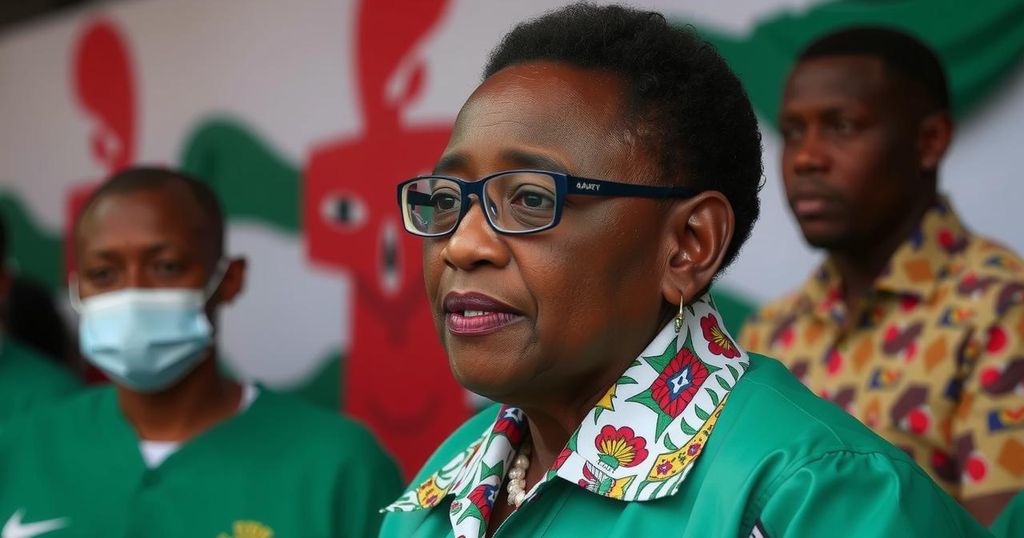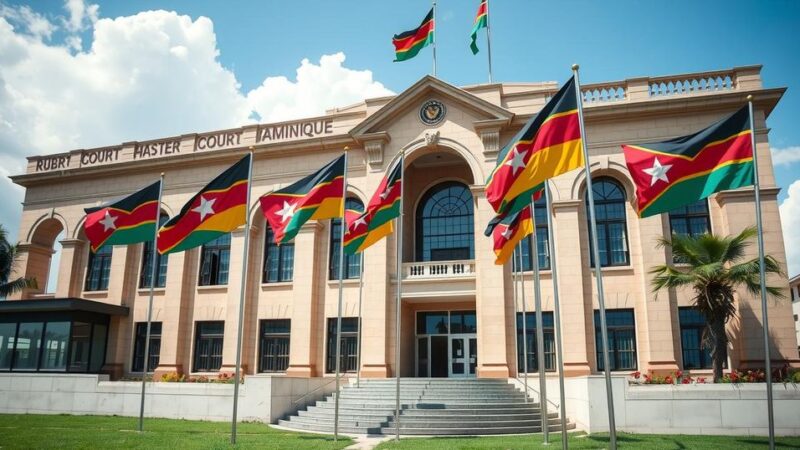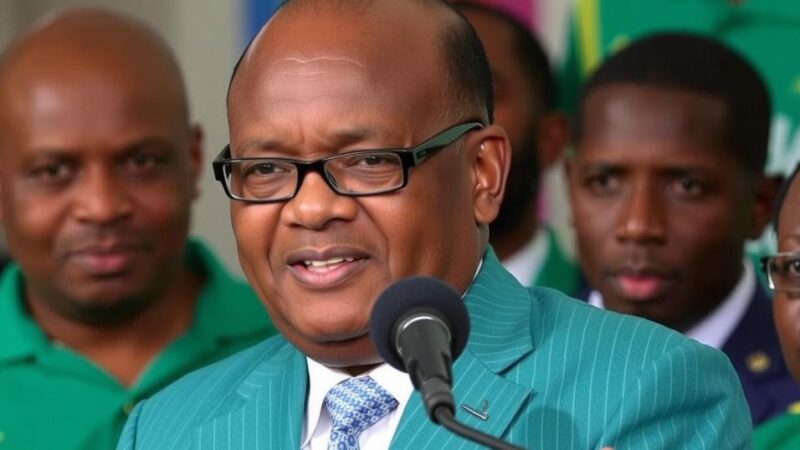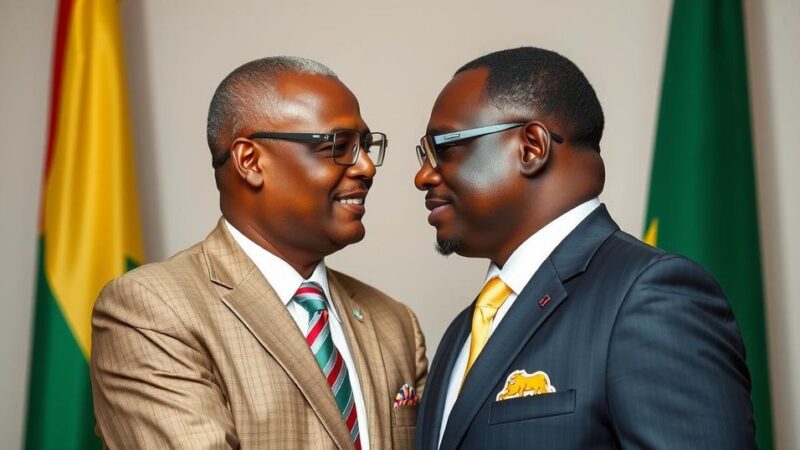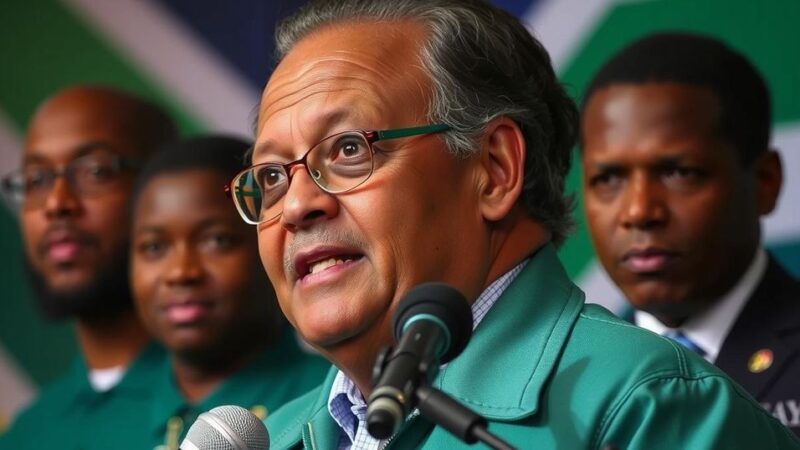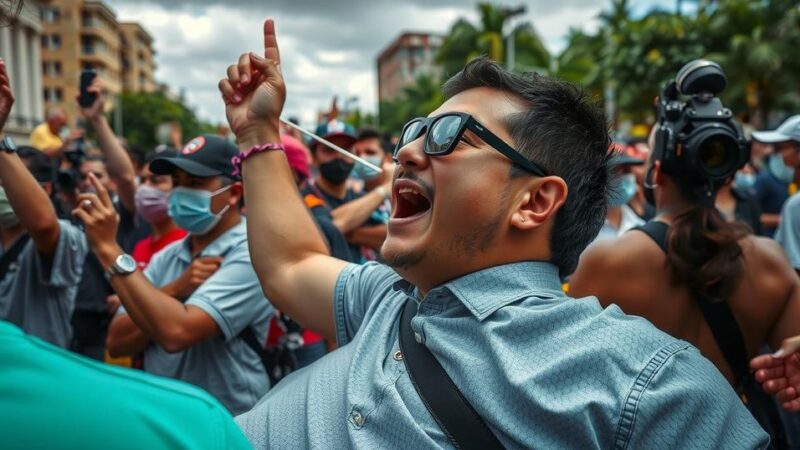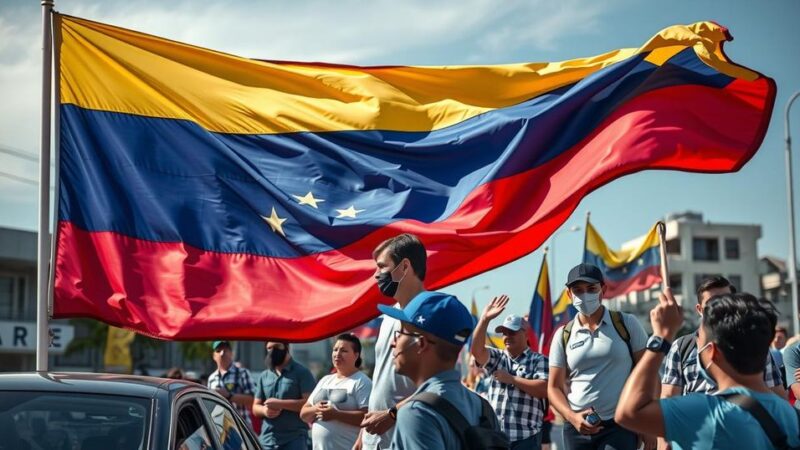Tension in Maputo, Mozambique rises as the Constitutional Court prepares to rule on the contested presidential election results amid calls for protests led by opposition leader Venâncio Mondlane, who claims the outcome was rigged. The electoral commission denies allegations of fraud, while international observers cite severe irregularities. Recent demonstrations have led to over 110 fatalities in violent confrontations with police. Pope Francis has called for dialogue to address the unrest.
In Maputo, Mozambique, there exists a palpable tension as the nation awaits a critical court ruling concerning the disputed results of the October presidential election. The official announcement indicated a victory for ruling party Frelimo’s candidate Daniel Chapo, who secured 71% of the votes, leading to claims of electoral fraud by opposition leader Venâncio Mondlane. Currently in exile after threats to his safety, Mondlane has galvanized his supporters to protest against the alleged rigged election results, warning of the possibility of a new wave of civil unrest if the outcome is not annulled.
The once vibrant atmosphere of Maputo has dimmed considerably; roads are quiet as citizens brace for potential further disturbances. Following the elections, widespread demonstrations have erupted leading to violent confrontations with authorities, resulting in significant fatalities, many attributed to police actions against protesters. A recent statement from the Pope encouraged dialogue and a collective focus on the common good within the largely Catholic nation.
As the Constitutional Court prepares to deliver its verdict, the situation remains precarious, highlighting underlying tensions that have marred Mozambique’s electoral process for nearly half a century under Frelimo’s governance. Reports from international observers have corroborated claims of serious electoral malpractice, which further complicates the political landscape and raises questions around the legitimacy of the government’s authority.
The political climate in Mozambique is significantly charged following the October presidential election, which has been marred by allegations of voter fraud and corruption. This situation is part of a broader history of political unrest in Mozambique, where the ruling party Frelimo has been in power since the country’s independence in 1975. The latest elections have sparked renewed protests, marking a pivotal moment of resistance against perceived injustices in the electoral system. The actions of opposition leaders, particularly those of Venâncio Mondlane, illustrate the growing dissatisfaction among segments of the population and the potential for continued civil disobedience if the current political grievances are not addressed.
The unfolding events surrounding the disputed election results in Mozambique illustrate a critical juncture in the nation’s political history. The tension in Maputo underscores the fragile state of governance and societal loyalty, revealing a populace that is increasingly unwilling to tolerate perceived injustices. With calls for dialogue from influential figures such as Pope Francis, the hope remains that a peaceful resolution can be reached amidst the rising urgency for change. The forthcoming court ruling will be a significant factor in determining the next steps for both the government and the opposition.
Original Source: www.bbc.com

